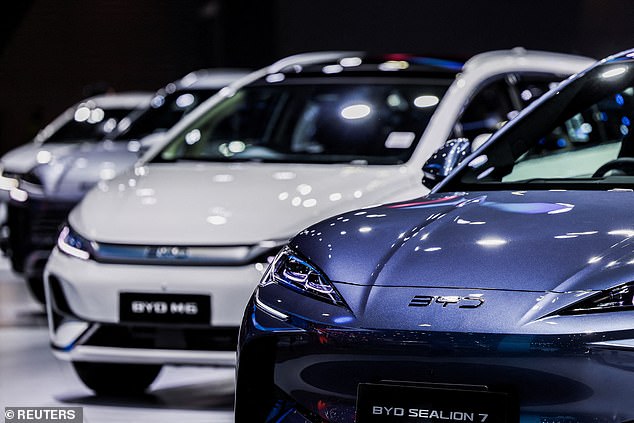Britain’s defence sector is taking a cautious approach to Chinese-made electric vehicles, with top companies warning staff about potential security risks associated with charging phones in these cars.
Defence firms, including BAE Systems and Rolls-Royce, have advised employees to avoid connecting their mobile phones via Bluetooth or charging cables to Chinese electric vehicles.
The concerns stem from the possibility that the Chinese state could be spying on cars using electric vehicles, potentially compromising sensitive national security data.
Joseph Jarnecki, a research fellow at the Royal United Service Institute, noted that defence firms are targets for espionage and are taking measures given historical evidence of Chinese espionage efforts.
Chinese manufacturers, including BYD, Ora, Geely, and XPENG, have seen growth in the UK market. Some of these manufacturers are also associated with other brands such as MG, Volvo, and Polestar, which are owned by Chinese companies.
XPENG denied that its cars spy on drivers, stating that it is unlikely the Chinese state will risk damaging the company’s reputation by associating it with international spying.
Experts like James Bore, managing director of Bores Group, believe that while theoretical attacks on devices through chargers are possible, there is no evidence of such incidents occurring in the wild.
The UK defence firms’ cautious approach includes avoiding parking in production plant car parks and refraining from connecting personal devices to company cars.
The concerns have emerged as the UK sees an increase in Chinese electric vehicle sales, following international tariffs imposed by Donald Trump on China, which have doubled the prices of Chinese electric cars in the US market.
MailOnline has reached out to various Chinese electric vehicle manufacturers and the Chinese Embassy in London for comment.




